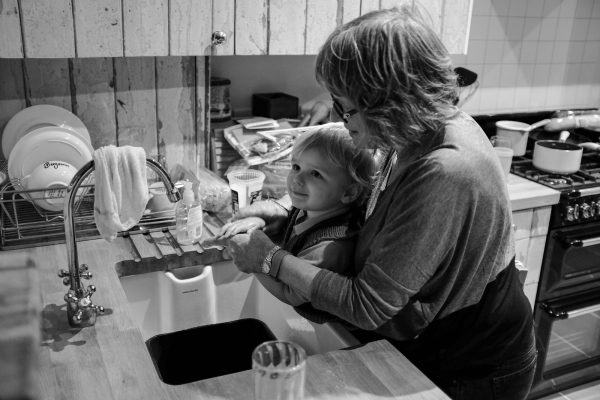
With covid-19 cases exploding around the country and widespread vaccination still months away, people have to make tough decisions about how to stay both safe and sane. Anyone walking down a grocery store aisle or scrolling through social media can observe group differences in behaviors like mask-wearing and distancing . In their new article, Janani Umamaheswar and Catherine Tan find that men and women actually perceive the risks of contracting covid-19 similarly, but they respond to these risks differently because of differences in care responsibilities.
The authors conducted three waves of interviews among a diverse group of 45 college students between April and July 2020. They found that men and women in similar situations assessed their overall risk of contracting covid-19 similarly. For instance, men and women understood the risk of activities, such as working outside the home, and the influence of pre-existing medical conditions in similar ways. Overall, however, the men downplayed the risk of covid-19, suggesting that precautions such as wearing a mask were “annoying” and that the risk of covid-19 had been exaggerated. The women in the study expressed much higher levels of anxiety and concern, with one woman describing working outside the home as “terrifying.”
Umamheswar and Tan argue that men are less concerned about covid-19 because they have fewer care responsibilities. Women, in contrast, emphasized that they felt responsible for managing the risk for both themselves and others. For example, women asked their fathers to stay home from jobs and did the grocery shopping to prevent family members from being exposed. Although most of the men in the sample downplayed the risk of covid-19, those who had significant care responsibilities expressed similar levels of worry as the women in the sample.These findings suggest that assessments of risk and risk management are tied to unequal care responsibilities that are made worse by the current pandemic rather than expectations about how different genders should express their emotions. This study finds that women are more often left responsible for worrying about the health of their significant others. This unequal psychological burden of care is thus an important consideration for both families and policy makers grappling with the consequences of the covid-19 pandemic for gendered inequality

Comments